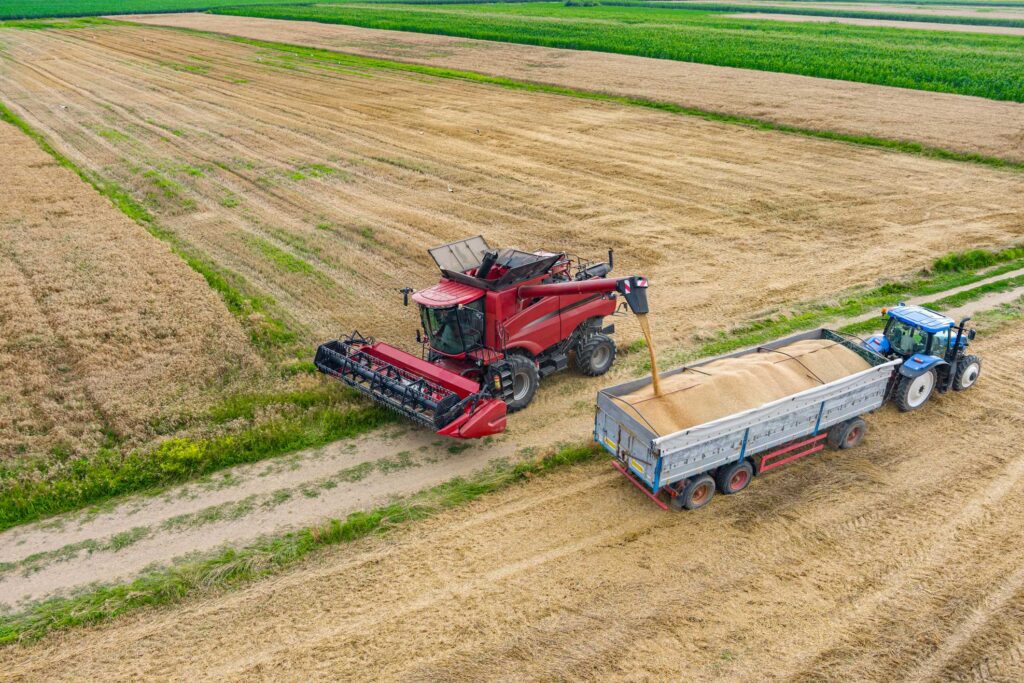
As you may have noticed, the perceived differences between Romania and the Netherlands are also a popular topic of conversation in my personal life. Especially in discussions with other entrepreneurs in our small Dutch/Belgian community in Craiova. This got me thinking that in Post Craiova, we should occasionally highlight the perspectives of other Dutch and Belgian entrepreneurs active in the same region.
This time, we hear from an entrepreneur in a completely different industry than ours, yet still a pioneer. Peter Rottier has been running an arable farm in Romania since 2015, managing no less than 4,200 hectares of farmland. That’s a lot. The average farm size in the Netherlands is 30 to 40 hectares, and in Romania, it’s only 2.8. This is due to the fact that agriculture here is generally still very small-scale and fragmented, a remnant of past times.
Peter has built a thriving business from practically nothing in ten years, employing 57 people, with constant technological innovation at the core of his operation. In my opinion, he practices what I call common-sense entrepreneurship. Step by step, he tries to optimize continuously and use available resources as efficiently as possible. This is certainly not a given for Dutch entrepreneurs in Romania, but at the same time, it’s a huge advantage: Peter speaks fluent Romanian.
Peter says, “Being able to start this business is a dream come true. I’ve always had the ambition to become a farmer and grow crops; my entire education and career were focused on that. The Netherlands offers a great foundation of knowledge, technology, logistics, and markets. But starting an agricultural business from scratch is financially nearly impossible. So moving abroad is really the only option.”
“Romania came onto my path through an entrepreneur who was looking for someone with knowledge of plant cultivation. Well, I have that. This partner ultimately wasn’t interested in working in rural Romania, but I thought: it’s now or never. Together with a Belgian family, I was able to take over a grain business. Grain is an easy crop to grow, and the land in the Craiova region turned out to be very good and suitable, even for a variety of other crops. Since 2019, we’ve started cultivating peonies on a few hectares. Thanks to our market in the Netherlands, we were able to scale up significantly within a few years. I invested in things like harvest belts, cold storage, etc., and in training skilled permanent employees, who are now true product specialists. Because we want to retain their knowledge and make the best use of the technical resources we’ve invested in, we’ve also started cultivating rose hips, which are used as ornamental material in the flower trade. Through smart diversification with different crops, we are now almost active year-round.”
“What I like about Romanian workers is that they really go for it. They’re loyal and flexible, and they don’t mind putting in a few extra hours. Of course, as an employer, you also need to be willing to bend sometimes. That’s probably the biggest contrast with the Netherlands, where everything is laid out to the minute in rules and procedures.”
In a relatively short time, Peter, like myself, has seen Romania change quite a lot. He shares how he has experienced this: “What I really enjoy is that the development of our company actually parallels the development of the country. We started from scratch and tackled it well from the start, with investments in the latest techniques, not hindered by the need to replace old technology. You see the same trend across Romania, especially in the cities. When I moved to Romania, people in the Netherlands wished me good luck. Now, when I have visitors, they often don’t notice any difference between Craiova and other large cities in Western Europe. The younger generation, in particular, doesn’t stand out much from their peers anywhere in Europe in terms of attitude and mentality.”
Peter’s story shows once again that doing business in Romania is much less exotic than it may seem on the surface, and the differences are shrinking at a rapid pace. The professionalization and scaling of Romania’s rural areas are in full swing, largely thanks to the tireless efforts of people like Peter Rottier and the approximately 3,500 Dutch entrepreneurs active in Romania with him.